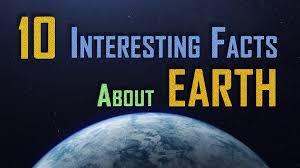
Some aspects of our bodies can be quite bizarre. Let's explore some of more fascinating and obscure functions found in the human body.
The human heart is capable of beating out a whopping 100,000 times a day. This may not seem like much but think about this: If your heart stopped pumping every second for one day, then you would die. It can also squirt blood up to 30 feet away.
The human eye contains more than five hundred million pixels. This is more than half the size of an average cell phone. Because of the cilia which attach to the eyeballs, the human eye can grow as large and as long as a football.
The light produced by the human eye can also illuminate small rooms. The human body has approximately 100,000 miles worth of blood vessels. These arteries are responsible for carrying oxygen from the blood into the tissues.

Another system known as the "diving reaction" shuts down certain bodily function when we are submerged under water. The pupil in our eyes expands by approximately 45% when we are able to see something pleasing.
Our appendix is also present. Untreated, this organ could become infected. In fact, 80% of the liver in humans can be removed.
The human body is an amazing place. It contains enough fat to make seven bars of soap. It also houses hundreds of millions upon millions of bacteria. The skin, the largest organ in our bodies, is oily, greasy, and home to over a thousand species of bacteria.
The human body is capable of doing many other mundane and bizarre tasks. Not only do we blink 10,000,000 times per year but we also do the terrifying. There is a lot going on in your mouth. Besides the obvious functions, you also swallow and breathe.
The toilet is also available. Toilets are not only the largest and most important parts of a bathroom, but they also provide the primary source of reading material for an average home. The average person drinks 20,000 gallons of water during their lifetime.

The human body also has a "sneezing function". Exercising too much can lead to rib fractures. More than 8,000 taste buds reside in the human nose. The tongue contains more than 100 taste buds.
The human brain can produce more energy than is needed to power a lightbulb. If you don't include the ovaries the human body can generate 350,000 joules/hour. This is more than enough to make a light bulb blink its eyes.
Some other fascinating facts about human bodies include our "diving", reflex, eyes being the largest organ of our bodies and the fact that our bodies can fly. We also have more cars on the road than people. But there are more sea crayfish than humans so it's safe say that the human body has more power than most people realize.
FAQ
Here are 5 fascinating facts about the liver
The liver is responsible in breaking down toxins, storing vitamins and mineral, and for regulating blood pressure. It also helps regulate blood pressure and keeps our body temperature stable.
We hear it all the time: "I feel sluggish today" or "my head feels heavy". These symptoms could indicate problems with your liver.
Some common signs include dark urine, yellowing skin, fatigue, nausea, vomiting, loss of appetite, stomach cramps, jaundice (yellow coloration), and itching. These aren't all warning signs. These are not the only warning signs. Make an appointment immediately with your doctor if they occur.
The liver is an important organ. It is an important organ that plays a vital role in detoxification.
-
The average adult liver weighs 1,400g.
-
At birth, the liver of a baby can be half as big as an adult's. By age three, it is about four times larger than that of an infant.
-
The liver is located just below the rib cage on the left side of the abdomen.
-
There are 16 major lobes of the liver. But there are also many smaller ones.
-
The liver is home to approximately 10 million red blood cell units.
Is there a more mysterious place than the Earth itself?
Antarctica is home to the most mysterious and remote place on Earth.
What is it that makes this place so interesting? Because it is unlike anything else on Earth.
It is difficult to access because it is remote and extremely isolated. This site has more to it than meets your eye.
You will also find some of the oddest wildlife species in this natural wonder.
So let's explore how this remarkable destination became famous for its mystery.
Antarctica: The South Pole
It is not known why Antarctica was called Antarctica. Others believe it means "land with ice". Others believe it comes out of Greek mythology.
Antarktis is the name Antarktis was given to an island in ancient Greece by Zeus' twin brothers. According to one source, one of the twins was conceived in winter. Thus, the term antarctic.
Others believe that the name is a combination of the Greek words anti and tropos which mean against and turn. This would be land turned away form the sun.
Whatever the reason Antarctica has always been a fascination for people.
It is the driest, windiest of all continents. There are no trees, plants, or animals here because it is too cold.
Yet, life is abundant in this frozen wilderness.
Here are about 90% of all the living creatures on Earth. There are about 50% of the world's animal, plant and plant species.
And what makes Antarctica such a unique environment? Here, water freezes into ice instead of evaporating into the air.
This causes large ice masses to rise above the ground.
These floating glaciers cover over 80%. They are growing in size every year.
The Antarctic Ice Sheet has grown 60 feet in the past 60 years.
The sea level will rise up to 200 feet if melting continues. It could result in massive flooding all over the world.
This does not mean that everyone is wrong. Some scientists think global warming might be beneficial. They say that as temperatures rise, the ice sheets might melt faster, causing floods that flush out tons of toxic chemicals from our soil and bodies.
Others warn that this theory sounds like something out of a science-fiction movie.
How does your brain control your body's functions?
The brain communicates with other organs to ensure their cooperation. Everything in your body is controlled and managed by your brain. It tells your stomach how to digest food and your lungs how to inhale oxygen; it also tells your arms, legs and feet to move.
Your brain is made of billions, or neurons, of nerve cells. Neurons communicate with each other by sending electrical signals called action potentials on axons. Every neuron has an outer cell membrane that surrounds its nucleus. The cell membrane houses channels that allow ions, such as potassium and sodium, to enter and exit the cells. Ion movement is what causes the neurons to fire.
Neurotransmitters, chemical substances that are released when a neuron fires. Neurotransmitters are able to bind to receptors in the second neuron. This opens ion channels that allow ions to flow in and out. In turn, the second neuron also fires.
When another neuron sends an impulse to the presynaptic neural cell, neurotransmitter is released. An impulse travels along a synaptic link between the two neuron. The transmitter binds with the receptors of the postsynaptic nerve, activating the firing of the postsynaptic neurons.
The nervous system relies on neurotransmitters for communication. They are also responsible for coordinating activity between various parts of the brain.
Ever wonder how much trash gets produced each day around the world?
According to the United Nations the average person creates more than 2.5 lbs of waste daily. That adds up over 25 billion kilos of garbage every year.
Most of this trash ends up in landfill dumps or incinerators.But what happens when those dumpsters get full? Most of that trash is shipped out of the country. It is then dumped in other countries, where it pollutes their ecosystems.But now, thanks to the work of one man, we know exactly where all this trash goes. Mike Sexton is his real name. He runs Waste Watchers, a company that monitors the movements of trucks carrying trash all across North America. He then reports back about what happens next.
Sexton states that he finds his work very fulfilling. CNN interviewed Sexton and said that he has a lot of fun. "We often see large rigs passing through our town and we will follow them. "Sexton began following truckers almost 20 year ago.
"It's all I felt," he stated.
He loved the story of the driver who pulled into an abandoned gas station near Los Angeles. "The guy was looking for someplace to put his load," Sexton recalled. "He drove down the road to see this building. He backed up and entered the building. "There was a pair of large, full-sized roll-off boxes. The guy took everything out and started filling up the truck again. "The man looked around the area and decided to unload all of it. There were a bunch of old tires, rags, furniture, mattresses, boxes, bottles, cans, and whatever else. "It was just a total mess. But it had been cleaned before he arrived. There was not a single piece of trash.
This is the reason why it happened. Well, the answer is that this particular location used to be part of a recycling center.People who learned about this facility would drive here to recycle their trash. Sexton explained that they would bring household items and take them to the building. Then, after they were done, they would empty the containers.
You might see this happen hundreds of times a day. The truck can be stopped running if it is so full of junk that it has to come back hundreds of times per week. And eventually, the owner decides to abandon the vehicle.
Trash isn’t the only problem we face on the planet.
Plastic pieces make up most of these particles. Some end up in rivers and oceans, while others end up in fish's stomachs.
Experts say if nothing changes, we could soon face a global food shortage. Experts warn that "if we keep going the way we are, we're not going make it," although scientists agree that the world is heading toward disaster. Most people, however, don't seem to be concerned.
Statistics
- According to a 2018 study published in Free Radical Biology & Medicine, this is because blood pressure is regulated by our innate circadian rhythm and internal clock. (romper.com)
- A 2012 paper published in the Proceedings of the National Academy of Sciences reported that people blink about 15 to 20 times each minute, meaning, if you do the math, you spend about 10% of the time that you're awake blinking. (romper.com)
- Your mouth makes a lot of saliva every day It might seem like way too much, but your salivary glands typically produce anywhere from 0.5 and 1.5 liters a day, according to a 2009 study published in the Journal of Medicine and Life. (romper.com)
- In one 2014 study published in the Archives of Medical Science that sought to study the prevalence of these mites, research showed that 41% of the people had them hanging out in their eyelashes. (romper.com)
- In fact, according to the American Academy of Ophthalmology, you make 15 to 30 gallons of tears each year, which is insane when you think about it. (romper.com)
External Links
How To
Hollywood Actors With Dark Past
There are many stories that have been told about actors with dark backgrounds. But we will never know because we can not go back and ask them directly. But there's a way to discover more about these actors' lives without digging too deep.
Internet is a fantastic tool for finding information regarding famous people. Not only do you learn interesting facts, but you also get to read about how they lived their life.
Let's suppose that you are interested in Samuel L. Jacksons childhood. If you type his name into Google, you'll probably come across a website called "SamuelLJacksonChildhood." This website includes pictures of him as a young man, articles about how he was raised, and even a biography.
Although it might seem boring, this information could be useful in helping you to better understand Samuel L. Jackson. You might be surprised to learn that Jackson grew up in a poor neighborhood but was able to overcome adversity and become a successful man.
You might feel motivated to overcome your obstacles or learn that Samuel L. Jackson plans on making a movie based upon his life. Samuel L. Jackson can be a great friend if you share your personal experiences.
This website is just one of many. These websites can be used to find out more about famous people. You might be surprised by some of the facts you uncover!